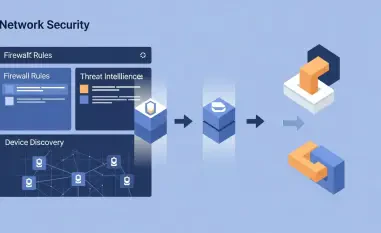In an era where digital security is paramount, a startling discovery has unveiled how a seemingly minor flaw in a widely used browser can become the linchpin of a sprawling espionage operation, shaking trust in everyday technology. Earlier this year, cybersecurity researchers stumbled upon a zero-day vulnerability in Google Chrome, identified as CVE-2025-2783, which was actively exploited in a highly targeted cyber campaign dubbed Operation ForumTroll. This incident not only exposed the fragility of even the most robust software but also highlighted the growing nexus between technical exploits and geopolitical motives. Attributed to a threat group known as Mem3nt0 Mori, also referred to as ForumTroll APT, the campaign zeroed in on organizations across Russia and Belarus, ranging from academic institutions to government bodies. The sophistication of this attack chain has sent ripples through the cybersecurity community, raising urgent questions about the evolving nature of cyber threats and the tools that enable them.
Unpacking the Technical Exploit
The Vulnerability at the Core
At the heart of Operation ForumTroll lies a critical flaw in Chrome, exploited through a sandbox escape technique that allowed attackers to bypass the browser’s built-in security mechanisms. This zero-day vulnerability, CVE-2025-2783, capitalized on a logical error in how Windows handles pseudo handles, enabling unauthorized code execution within Chrome’s browser process. What made this exploit particularly insidious was its ability to infect systems without requiring any additional user interaction beyond opening a malicious link. These links, embedded in meticulously crafted phishing emails tied to the Primakov Readings forum, were short-lived to evade detection. Google responded swiftly, releasing a patch in version 134.0.6998.177/.178 to address the issue, while Firefox also identified and mitigated a related flaw, CVE-2025-2857, in its own browser. This rapid response underscores the urgency of addressing such vulnerabilities, though the incident reveals how even obscure technical quirks can be weaponized with devastating precision.
Mechanics of the Attack Chain
Delving deeper into the attack methodology, the operation showcased a level of technical finesse rarely seen in typical cyber threats. The attackers leveraged the Chrome flaw to execute a multi-stage infection process, beginning with highly personalized phishing emails that appeared legitimate to the targeted organizations. Once a victim clicked the malicious link, the exploit triggered a sandbox escape, allowing the deployment of malicious payloads directly into the system. This approach bypassed traditional security measures by exploiting non-malicious actions within the browser environment, a testament to the ingenuity behind the campaign. Kaspersky researchers, who uncovered the operation, noted that the use of such logical vulnerabilities poses risks far beyond browsers, potentially affecting other software and services. The complexity of this exploit chain serves as a stark reminder that modern cyber threats often rely on deep systemic weaknesses rather than brute-force tactics, challenging defenders to rethink conventional security paradigms.
Broader Implications and Threat Landscape
Ties to Commercial Spyware
The discovery of Operation ForumTroll also shed light on a troubling connection to the commercial spyware market, raising concerns about the proliferation of surveillance tools. Kaspersky’s investigation linked the tools used in this campaign to Mem3nt0 Mori’s earlier activities, including the deployment of spyware like LeetAgent, capable of remote command execution and data theft. More alarmingly, the operation marked the first documented use of Dante, an advanced spyware platform developed by Memento Labs, previously known as Hacking Team. Dante’s robust anti-analysis features and encrypted communications made it a formidable tool for espionage. This intersection of state-aligned cyber operations and commercial surveillance vendors illustrates a dangerous trend where tools designed for legitimate purposes are repurposed for malicious intent. The presence of such sophisticated spyware in active attacks underscores the need for greater oversight and regulation of the global surveillance industry.
Evolving Risks and Future Challenges
Beyond the immediate threat posed by this specific campaign, the incident highlights a persistent challenge in the cybersecurity landscape: the exploitation of obscure vulnerabilities by both nation-state actors and private entities. Researchers have emphasized that logical flaws, like the one exploited in Chrome, are not isolated issues but systemic risks that could impact a wide range of software. The use of sandbox bypass techniques in Operation ForumTroll further demonstrates how attackers continuously adapt to evade even the most robust defenses. As the overlap between espionage operations and commercial spyware grows, the potential for similar campaigns targeting other regions or sectors increases. Looking ahead, this case serves as a call to action for software developers, policymakers, and cybersecurity professionals to prioritize the identification and mitigation of such vulnerabilities. Collaborative efforts to scrutinize operating systems and applications for hidden flaws will be crucial in staying ahead of adversaries who thrive on exploiting the smallest cracks in digital infrastructure.













